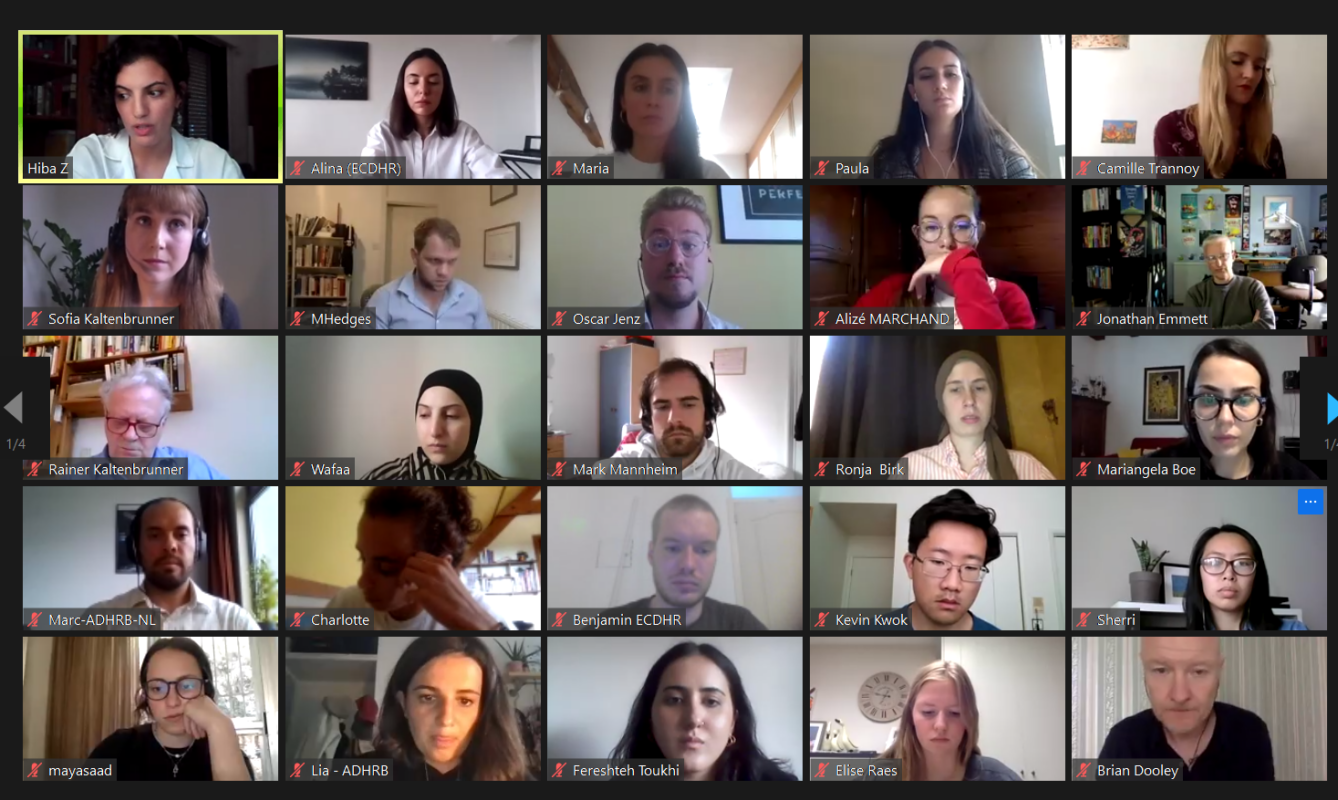If you would like to watch the full event, you can do so here.
1 July 2021, At an online-streamed event, which was held on June 29th, high-level panelists, including academic Matthew Hedges, shed light on the United Arab Emirates’ (UAE) “Tools of repression” in a global economic and political context.
Aimed at uncovering the truth behind the Emirates’ tolerant façade, the event explored how a flawed legal system and a multibillion-dollar PR machine are used to provide legitimacy to the abuses committed by the UAE’s regime.
The event was sponsored by Finnish Member of the European Parliament, Alviina Alametsa, who, in her opening remarks, emphasized the EU’s statutory commitments to human rights but added that “we [the EU] fail too often to live up to our commitments” and that “we have neglected to put Human Rights and the Rule of Law at the forefront, particularly when it comes to arms export licences”.
Jointly organised by a coalition of three human rights organisations with a focus on the MENA region (ICFUAE, ECDHR and ALQST), the event hosted four expert panelists with years of experience in the field: Brian Dooley, Hiba Zayadin, Oscar Jenz and Matthew Hedges.
The panel focused on the UAE’s repressive legal and judicial systems and its vast international soft power machinery. As such, panelists aimed to explore the economic, political, and military ties the sheikhdom has forged with the EU, UK, and the US, while also offering their insights into the desperate situation facing human rights defenders in the UAE, following a decade of increasing systematic state-sponsored repression.
In this context, Brian Dooley, Advisor to the UN Special Rapporteur on the situation of Human Rights Defenders, provided insight into the conditions of detention in the UAE. Mr. Dooley started by providing an overview over law No. 7, the UAE’s Anti-Terrorism legislation, which is used to persecute dissidents under the “vague umbrella of national security or counterterrorism”. He stressed that for a long time the situation of HRDs in the UAE has been enormously difficult. He also presented the priorities of the Special Rapporteur on HRDs, Mary Lawlor, focusing on the issue of human rights defenders, who have been sentenced to long terms in detention.
Researcher at Human Rights Watch’s Middle East and North Africa division, Hiba Zayadin, addressed the legal context under which many prisoners of conscience are persecuted, describing how vaguely worded provisions in the penal code, cybercrime and anti-terror laws have been used to ‘criminalize freedom of speech’ in the UAE. She further criticized the authorities’ persistent denial of access for independent researchers and international monitoring bodies. She pointedly asked the question why, if the UAE really were a modern and tolerant state, would they not allow independent observers into the country.
Oscar Jenz, UAE and Iran country coordinator at Amnesty International, put the aforementioned cases into a wider regional context. Mr. Jenz said that, during the Arab Spring, the UAE stifled any form of protest before it could even erupt and they did so through harsh repression of all dissenting voices. In addition, he highlighted the UAE’s lobbying efforts in the United States and emphasized the Biden administration’s recent 23 billion dollar arms export to the Emirates, despite the country being “the driver of conflict” in the region.
Matthew Hedges, a British academic in International Affairs and Security Studies, put the government’s increasing authoritarianism into a social context, explaining that “repression in the UAE is as a large result due to generational change”. Talking about the accumulation of wealth in recent decades, he added that “the social contract in place within the UAE has been rewritten in favour of a wealthier lifestyle”.
Following the panel, questions from the audience focused on how best to address the ongoing human rights crisis in the UAE, as well as how to influence any potential change for the better.
In their closing remarks, the moderators called for urgent action by the European Parliament and thanked the panelists for being a voice for those who may otherwise be silenced.





